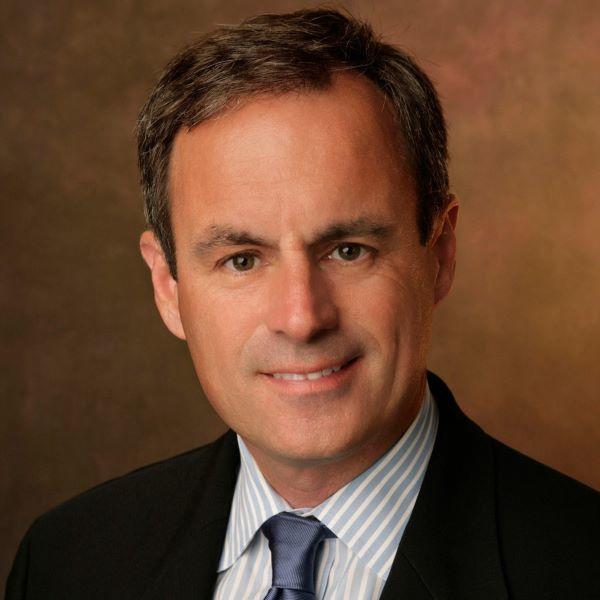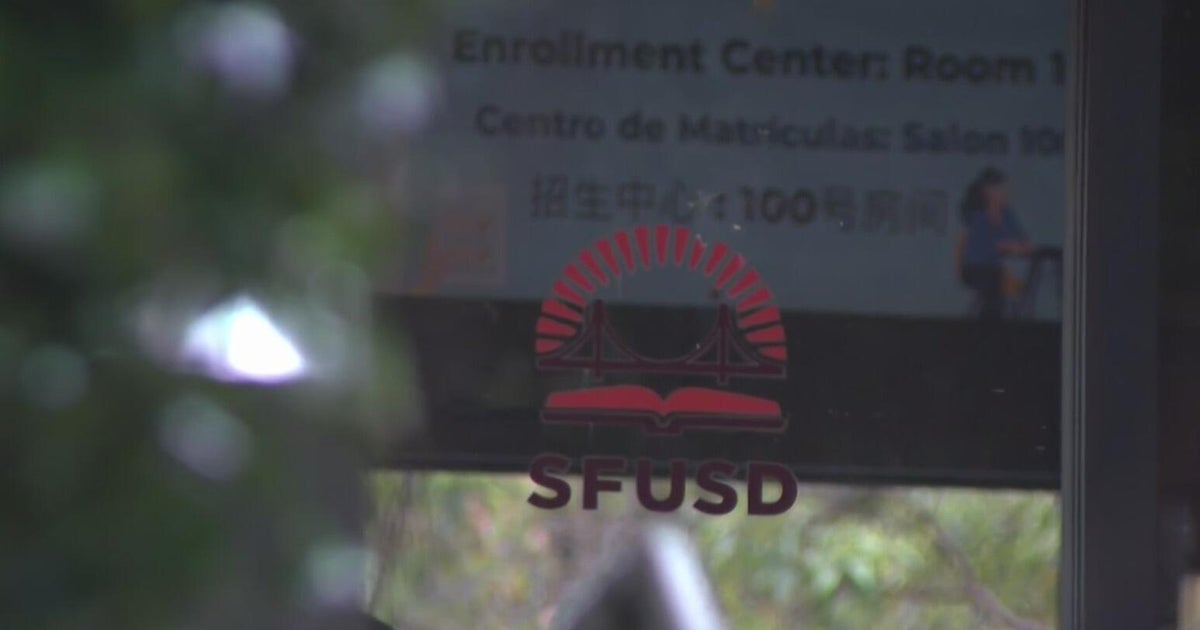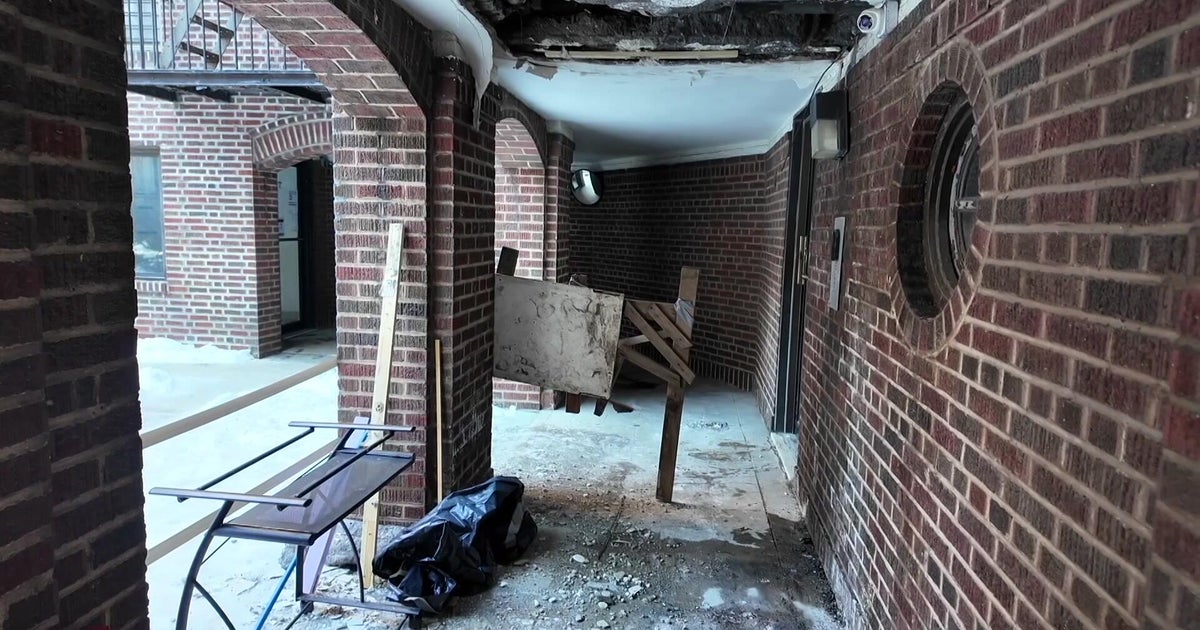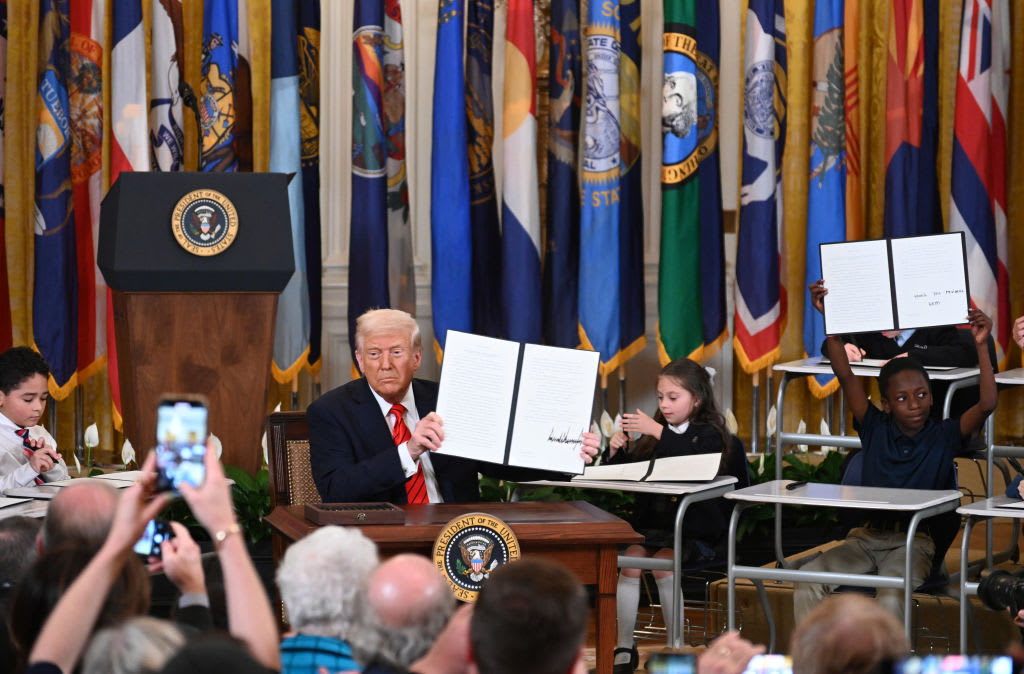For U.S. schools in disrepair, federal infrastructure dollars can't come soon enough
At Baker Heights Elementary, everything seems to be coming apart, and it's Timothy Scott's job to try to patch whatever's broken — whether it be falling ceiling tiles or a water fountain falling off the wall.
"It could be fixed, it could be repaired, but we're pulling funding from the classroom," Scott said.
Baker, Louisiana, just outside Baton Rouge, is home to roughly 12,000 people. Money is tight, and the population and tax base are shrinking. The infrastructure, including five school buildings that were all built in the 1950s, is crumbling.
Across the U.S., the average public school building is now nearly half a century old, and communities like Baker are facing a lot of repairs. Although Congress allocated more than $1 trillion to rebuild America's infrastructure in 2021, many schools across the country are growing desperate to fund the much-needed repairs.
To date, the infrastructure law has funded more than 40,000 projects across the country. But in many cases, the money reaches communities like Baker too slowly.
Baker Superintendent J.T. Stroder says declining enrollment means "it's tough to do anything." The problems with infrastructure are not limited to the city's schools, he says.
"You can drive around the community and you'll see how those kind of match," Stroder said.
"The way a student feels about their surroundings and their atmosphere affects how they perform academically," he added.
Overall, America's infrastructure — from roads to bridges to drinking water — has a grade of C-minus, according to the last "report card" from the American Society of Civil Engineers. The investment needed just to bring American schools up to par is $870 billion, according to the 21st Century School Fund.
Baker Mayor Darnell Waites knows Baker's challenges firsthand.
"Everything that I do is infrastructure," Waites said. But despite knowing what the problems are, "it takes money" to fix them.
"There's a lot of other things that's going on at the same time," Waites said. "You want infrastructure, but you want to be safe... so 50% of my budget is public safety and everything else goes toward infrastructure."
Much of that funding comes from state and federal funding, Waites said.
Louisiana Republican Senator Bill Cassidy was instrumental in negotiating the 2021 infrastructure law.
"During the COVID epidemic, billions were sent to state and local educational authorities," Cassidy said. "But oftentimes when the federal government puts up dollars, the state and local pull back and the net sum remains constant."
Many of these infrastructure issues existed long before the pandemic broke out.
In 2016, a flood closed the local high school. Ever since, students have had classes in the middle school building.
"I would say, I do feel forgotten about," one student said. "Kind of ashamed to say what school you go to."
The water-damaged high school will reopen this fall — 8 years after the flood.
"We don't have that experience, like a bigger environment for us to grow in and flourish in, but I'm hopeful for the future," another student said.
In many American communities, that's something else that has been slow to rebuild: hope.




